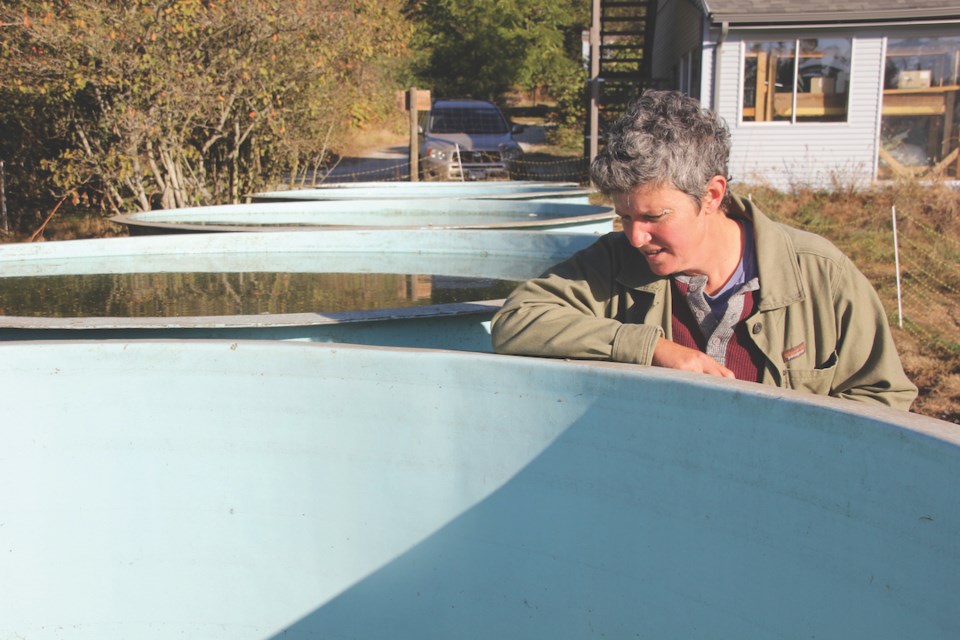Later this month, Sunshine Coast Regional District board members will consider a request from farmers to extend Stage 4 water restriction exemptions for food-producing farms for five years.
At the March 28 committee of the whole meeting, Area B director Justine Gabias brought forward a notice of motion that the committee consider such a recommendation to the board at its next meeting, on April 25. If the committee supports the item, it could be referred to the board for authorization that afternoon.
However, Sunshine Coast Farmers Institute requests for the regional district to hold off on charging food growers commercial water rates, to establish an SCRD agricultural committee and to make investments in policy research to better support their industry are proposed to be part of next year's budget process.
Discuss changes this year or later?
The institute says that pushing much of the discussion to the 2025 budget process is a "far cry" from the swift action they were hoping for. "If our community is serious about local food security, we need to start seeing some immediate action," institute spokesperson Julie Carrilllo said in a March 29 email to Coast Reporter. "The proposed action plan will see us starting discussions a year from now, while farmers continue to be charged the full commercial rate immediately, and still see themselves potentially impacted by Stage 4 water restrictions as of 2025."
"Fundamentally, we believe it is unfair to charge farmers the 'standard' commercial rates. Many of BC's communities encourage local food security and local agriculture through reduced water rates," wrote Carrilllo. "Farms have extremely high operating costs, a dependency on so many factors that are outside of the farmer's control, a short season, and low returns, yet we provide a necessary service to the community, and a positive impact on the environment.
The need for food security on the Coast is amplified by its ferry access-only nature, said Carrillo. "But instead of encouraging local agriculture, the current bylaws not only charge farmers the same commercial rate as other businesses on the Coast, they specifically penalize this group during stage 4 water restrictions given that farmers' water use occurs outdoors. These restrictions are not in the best interest of our community's need for food security, nor our ecosystem's long term health."
Background
The latest request for water restriction exemptions and changes to water rates follows lobbying done in 2022 and last year by the institute, a community that supports small-scale, ethical and sustainable farming on the Sunshine Coast. On Sept. 14, 2023, with Stage 4 measures in place for users on the Chapman Water System and bans on commercial water use set to come into force a week later, the SCRD Board granted a temporary exemption for food-producing farms reliant on regional district water. That exemption was in place for less than a week. The SCRD lifted Stage 4 restrictions on Sept. 27 that year, after rains replenished Chapman system water supplies.
During the committee meeting, Area A director Lenoard Lee spoke to what he called the “exceptional use” of smaller plots of land made by many local farmers. He said the industry is “something we need to encourage,” stating it took him back to times in the past when the area had less wealth and home gardens were the norm on Coast residential properties. Noting that local governments cannot provide direct assistance to businesses, he said the challenge was to find a workable solution for both farms and the wider community.



